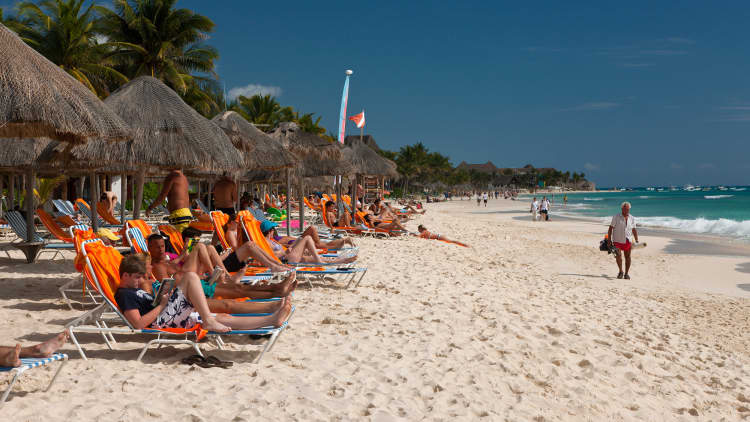Big luxury hotel brands face a big new challenge in attracting high-end travelers: boredom. That's according to hospitality industry veteran Filip Boyen.
"Luxury is evolving all the time, I think what is important to us is to understand what the customer feels luxury is," says Boyen, chief executive officer of industry player Small Luxury Hotels of the World (SLH).
Now, those travelers have become "a little bit bored with the predictability of big brands and standards, so what they're looking for now is a more personalized, unique, boutique style experience," he tells CNBC's Managing Asia.
Luxury has become less about frills -- many of which have become standardized across the industry -- and more about an experience of simplicity where "people feel incredibly connected with the destination and the local way of life," says Boyen, who began his 30-year hospitality career as a commis chef.
As an example of a less cookie-cutter experience, the Belgian CEO recalls that in 1997, when he was a general manager for Orient Express' Bora Bora Lagoon Resort, the hotel introduced a unique luxury picnic experience for two. The outing included a speed boat to take the couple out to sea to snorkel with sharks and stingrays, followed by the boat driver preparing a barbecue lunch on a private island. To cement the luxurious experience, only fine tableware were used, Boyen says.
To be sure, Boyen has a vested interest in playing up how smaller luxury hotels can offer a more varied experience for high-end travelers.
His company, SLH, is a hospitality brand affiliation company offering smaller luxury hotels a marketing platform and access to a members-only loyalty club and a database of over 25,000 travel agents.
That helps the smaller luxury hotel players compete internationally with bigger brands that can offer loyalty programs globally.
But U.K.-based SLH's 520 member hotels across 80 countries certainly appear to aim at offering a less standardized luxury experience, with associates including Tokyo-based historical train station hotels and an 11th century military fortress in Italy's Tuscan hills.
But Boyen emphasizes that acquiring SLH's brand affiliation isn't easy or cheap.
The average annual membership fee for hotels is $27,800 (£19,500), and Boyen says SLH only accepts 4 to 5 percent of the around a thousand applications they receive yearly.

Once a hotel receives affiliation, "secret agents" visit it every year to conduct a stringent inspection test of 700 quality standards.
Indeed, Boyen's own experiences as a seasoned traveler have made him very sensitive to quality issues in "refined hospitality." He says one of his major pet peeves is bad service.
It's not the champagne, view from the room, or the fruit displays that luxury travelers want, but the personal service from the hotel's general manager, he says.
Boyen emphasizes the need for general managers to be great hosts, leading by example to inspire their staff to build relationships with guests.
But he adds another pet peeve with hotels is making it too complicated to connect to the internet.
"I've been the hotels where connecting to the Internet is harder than launching a nuclear weapon," he says jokingly.


